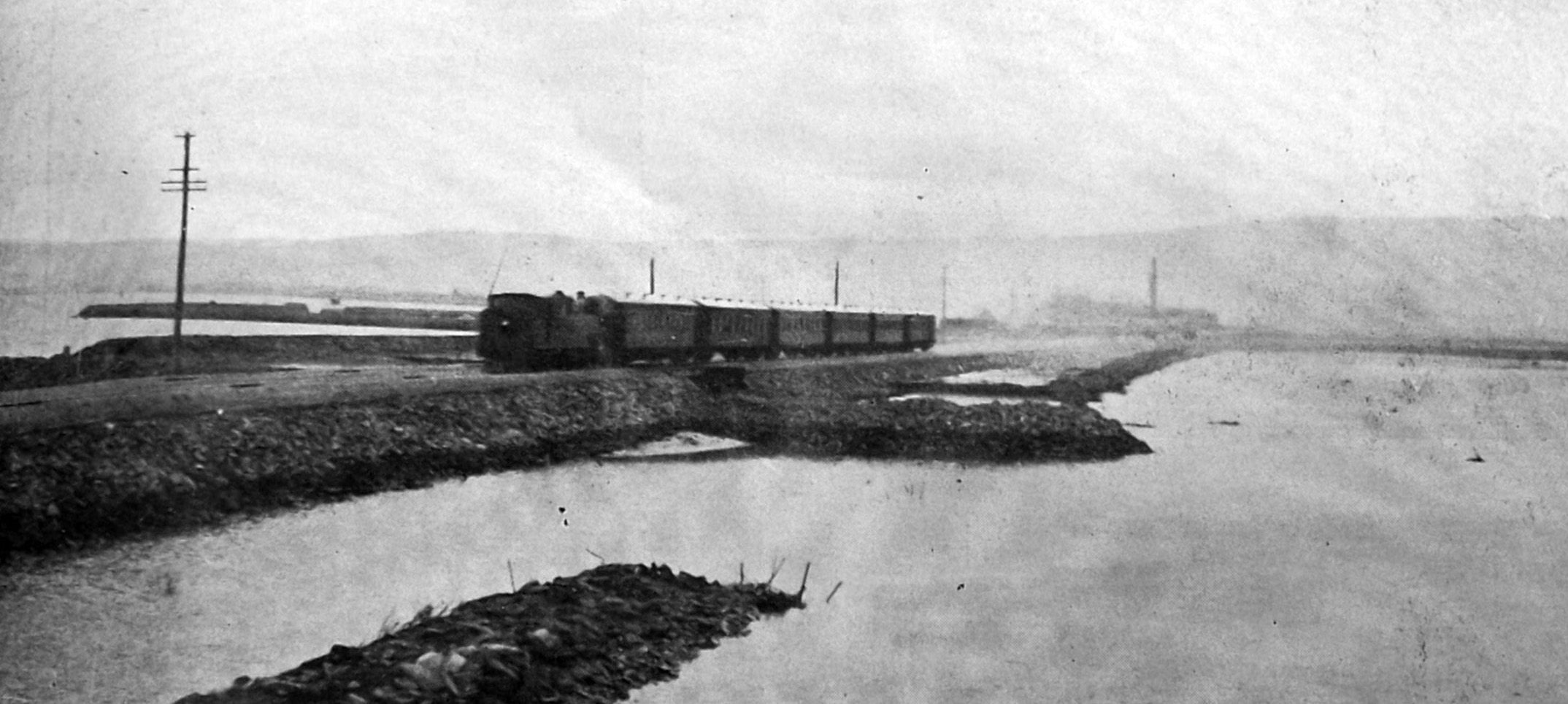

Mr G.W. Wyles, assistant signal and electrical engineer of the Railway Department, explained that the track between Dunedin and Ravensbourne is divided into four sections, by insulation from one rail end to the other. Entry to each by trains is governed by three-position coloured-light signals — red, yellow, and green. Red means that the section ahead is occupied by a train. Yellow means that the section ahead is clear, but that the next signal is red. Green indicates that the section ahead is clear, and that the signal on the next signal is either at caution or at clear — that is, that the two sections ahead are clear. A train on the rails prevents the electrical energy from reaching the relay which controls the signals; therefore, each train protects itself, quite apart from any human agency, the whole thing being automatically controlled to prevent any possibility of accident. The system of signals installed, said Mr Wyles, is the most up-to-date in the world, at the present time. In addition to the saving of a few minutes on the journey, a more frequent service can be maintained. Furthermore, much valuable land will be available on the city side on the rails, and everything is now in readiness to proceed with the construction of the highway to the Exhibition grounds.
Inquiry findings released
The Committee of Inquiry appointed by the Minister of Health to investigate and report upon the necessity for special care and treatment of mental defectives and sexual offenders has completed the report of its findings, which are of intense interest to the dominion. The committee met on 35 days, heard 92 witnesses, visited 14 institutions, and spent many hours travelling. The whole report may be described as an intensely human document, of paramount importance to the general health and welfare of the community.
For a considerable time, there has been a growing feeling of anxiety among the public owing to the number of mental defectives becoming a charge upon the State, and also the alarming increase in their numbers through the uncontrolled fecundity of this class. Owing to the frequency of sexual offences, many of a most revolting character, there was a strong demand that some action should be taken to prevent further acts of this nature; it being suggested that the law should be altered to make it possible for surgical operations to be performed upon these offenders. It is far from correct to suppose that all feeble-minded persons are sexual offenders, or that all sexual offenders are mentally defective. On the contrary, among sexual offenders of the worst type are persons possessing intellectual and artistic powers above the average. There is something wrong int their mental, moral and emotional balance, but not the "intelligent quotient" which is at fault.
The committee is of the opinion that the unrestricted multiplication of feeble-minded members of the community is a most serious menact to the future welfare and happiness of the dominion, and it is of the utmost importance that some means of meeting the peril should be adopted without delay.
— ODT, 5.5.1925 (Compiled by Peter Dowden)











